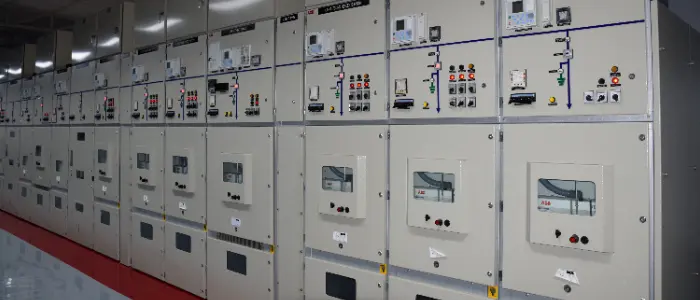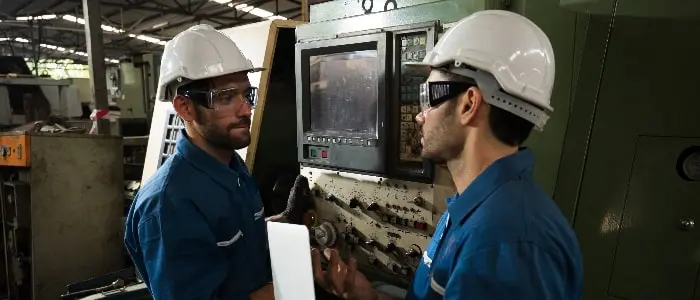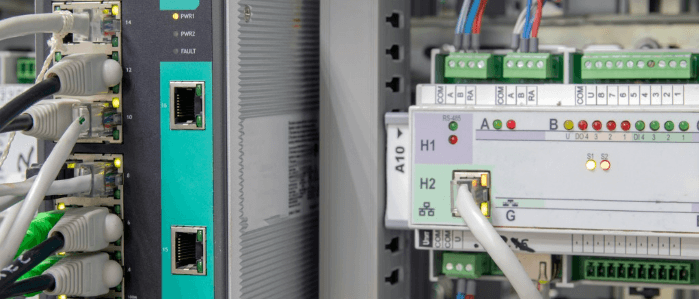Is it worth adopting digital marketing in Industrial Automation business ?
Published on : 12 July 2024

Marketing & sales in industrial automation & component business relies on traditional methods like trade shows, print ads, direct mail, & face-to-face sales meetings to reach customers. It often involves significant time and resources, with limited ability to measure precise results. In contrast, digital marketing uses online channels such as websites, social media, email campaigns, and search engine optimization to engage a wider, targeted audience more efficiently to grow any kind of business
Marketing & sales in industrial automation & components business relies on traditional methods like trade shows, print ads, direct mail, and face-to-face sales meetings to reach customers. It often involves significant time and resources, with limited ability to measure precise results. In contrast, digital marketing uses online channels such as websites, social media, email campaigns, and search engine optimization to engage a wider, targeted audience more efficiently to grow any kind of business. Digital marketing provides real-time analytics, enabling businesses to track and optimize campaigns for better results. While conventional marketing builds personal relationships, digital marketing offers scalability, cost-effectiveness, and data-driven decision-making to adapt to changing market dynamics.
What are the challenges in adopting Digital Marketing for an Industrial Automation business ?
Looking in to the current market scenario of both sides; the eco system of digital marketing services providers and the usual sales process of industrial automation businesses, stepping up in digital marketing by an industrial automation business faces several challenges.
- Firstly, targeting the right audience is complex due to the niche market.
- Crafting techno-commercial content that appeals to engineers and decision-makers requires specialized knowledge.
- High competition and differentiating products in a crowded market are significant hurdles.
- Limited understanding of digital marketing within traditional industrial sectors can lead to underutilized strategies.
- Long sales cycles and high-value transactions demand sustained engagement and lead nurturing.
- Demonstrating ROI from digital marketing efforts is challenging due to the intricate B2B sales process.
- Integrating digital marketing with traditional sales approaches requires careful coordination and alignment.
How effectively to adopt digital marketing services for a sustainable growth in any Industrial Automation business ?
Industrial automation suppliers can leverage digital marketing functions in several strategic ways to drive growth. Here’s can be a comprehensive approach:
1. Content Marketing
- Educational Content: Create detailed blog posts, whitepapers, case studies, and e-books that explain complex automation solutions. This positions the company as a thought leader and attracts prospects looking for in-depth knowledge.
- Video Tutorials and Webinars: Produce video content demonstrating how your products work, showcasing successful implementations, and hosting webinars with industry experts.
2. Search Engine Optimization (SEO)
- Keyword Optimization: Focus on industry-specific keywords that potential customers are likely to search for, such as "PLC programming", "SCADA systems", "robotic automation" “Industrial IOT” “Manufacturing Process Systems”, etc.
- Technical SEO: Ensure your website is optimized for speed, mobile-friendliness, and proper indexing by search engines.
3. Social Media Marketing
- LinkedIn: Use LinkedIn to share industry news, product updates, and case studies. Engage with industry groups and participate in discussions to build relationships with potential customers.
- YouTube: Share product demos, tutorials, and customer testimonials to reach a broader audience.
4. Email Marketing
- Newsletters: Send regular newsletters with industry insights, product updates, and promotions.
- Lead Nurturing: Develop automated email campaigns that nurture leads through the sales funnel with relevant content at each stage.
5. Pay-Per-Click (PPC) Advertising
- Google Ads: Run targeted ads based on specific keywords related to industrial automation. Use remarketing strategies to re-engage visitors who have previously visited your site.
- LinkedIn Ads: Utilize LinkedIn’s targeting capabilities to reach decision-makers in relevant industries.
6. Website Optimization
- User Experience (UX): Ensure your website is easy to navigate, with clear calls-to-action (CTAs) and detailed product information.
- Landing Pages: Create dedicated landing pages for specific campaigns, products, or industry solutions to improve conversion rates.
7. Analytics and Data-Driven Marketing
- Customer Data Platforms (CDPs): Use CDPs to gather and analyze customer data from various touchpoints to personalize marketing efforts.
- A/B Testing: Continuously test different marketing strategies and messages to see what resonates best with your audience.
8. Influencer and Partner Collaborations
- Industry Influencers: Partner with industry influencers to review and endorse your products and capability.
- Strategic Alliances: Collaborate with complementary businesses to co-market your products and solutions.
9. Customer Testimonials and Case Studies
- Showcase Success Stories: Highlight customer success stories and case studies to build credibility and demonstrate the effectiveness of your solutions.
- Video Testimonials: Create video testimonials featuring satisfied customers discussing their experiences and benefits gained from your products.
10. Interactive Tools and Resources
- ROI Calculators: Develop online tools that help prospects calculate the ROI of implementing your automation solutions.
- Virtual Tours and Simulations: Offer virtual tours of your facilities or simulations of your products in action.
11. Trade Shows and Virtual Events
- Event Marketing: Promote your participation in industry trade shows and virtual events through digital channels.
- Live Demos and Q&A Sessions: Host live product demos and Q&A sessions during these events to engage with potential customers directly.
12. Customer Relationship Management (CRM) Integration
- Automated Follow-Ups: Integrate your CRM with your marketing automation platform to ensure timely and personalized follow-ups with leads.
- Segmentation: Use CRM data to segment your audience and tailor marketing messages to different customer groups.
For effectively implementing these digital marketing strategies, industrial automation suppliers need an expert marketing partner within the domain of industrial automation itself, who can assist them with a comprehensive approach of implementing above strategies; starting from writing relevant industry & application content and all the way to circulating & connecting with the right audience in desired geo & functional segment.
Why is IndAXonline the right partner for a Industrial Automation business ?
With a rich experience of 30 years in Industrial Automation market and 8 years in digital marketing space, IndAXonline with Market Connect Services can be an ideal partner for implementing the digital marketing strategy for an industrial automation business. With over 1000 daily visitors from the industrial automation market and connections with 20,000+ customers across India and internationally, IndAXonline offers extensive reach and visibility. The program supports suppliers, resellers, and manufacturers from industrial automation market through targeted digital strategies, reducing marketing budgets and enhancing sales opportunities.
"Our comprehensive approach, combining industrial automation and digital marketing capabilities, allows businesses to focus on their core operations while entrusting their marketing needs to us. This strategy ensures the achievement of desired growth and market expansion."
For more details, visit the Market Connect Program page.




